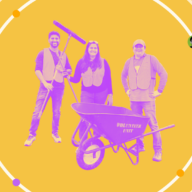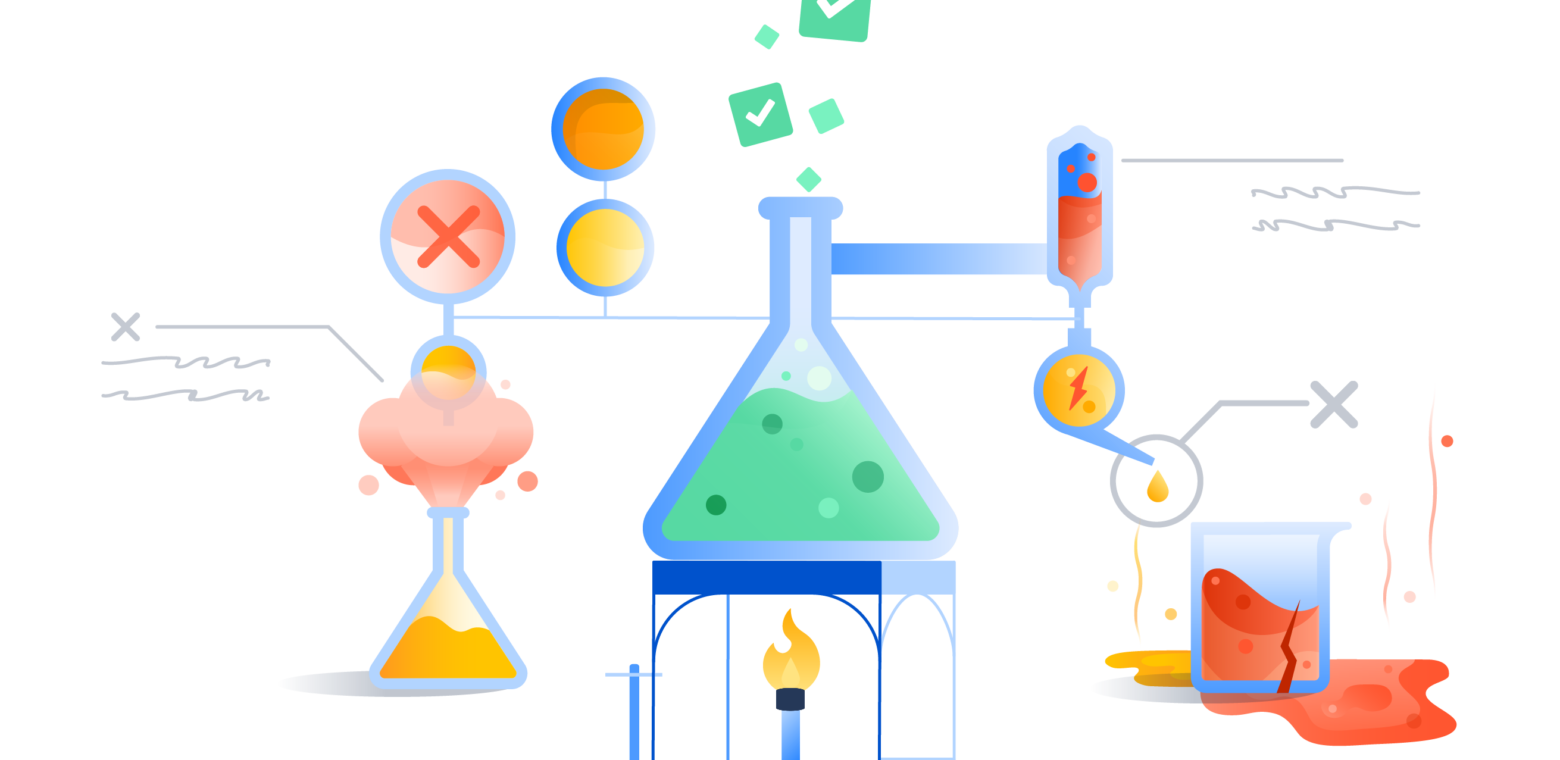Go ahead, include it with the others. “Fail” has gone full buzzword.
Shield your eyes (if you can) from the event banners, the blog post headers, the office posters, all with “fail” and “fail fast” writ large. Can’t we do better than grease the wheels of the failure bandwagon?
Let’s forget failure. What matters is how you fail. What’s most important is a desire to learn, and to keep learning.
The business world is volatile, it’s full of ambiguity and complexity. What worked last year might not work this year, or the next. To stay effective and relevant, we must try new things. New things that might not work, that might “fail” – and you keep going.
The biggest failure is to repeat last year, to repeat a previous failure. That’s the distinction. Sure, go ahead and fail fast. But you can just keep doing that, and will keep doing that, unless you learn from the process.
On failing well
Part of the problem is that the trendy use of fail challenges how we normally understand the word itself. To fail means to lose strength, to fade away, die, or stop functioning as usual. It’s no wonder that the posters and presentations promoting “fail” have little or no impact on company cultures. Fail fast? Not exactly motivational.
Because it’s more than merely accepting failure, more than adages about the importance of failure, more than how artistic and creative and product-driven endeavors require a willingness to take chances and make mistakes.
It’s the learning from failure, and applying that wisdom.
Failing well means: continuous learning and applying what you’ve learned.I see a difference between fear of failure and the fear of not being successful. It’s subtle, but it’s perfectly natural not to want to “embrace” or celebrate not being successful. And it’s perfectly understandable to have a fear of not being successful. Because nobody wakes up and thinks, “Yes, I’m going to excel at mediocrity today!”
So, rather than fail, and failure, and failing (fast or slow), instead let’s talk about how actions lead to lessons, and the better you get at observing your process, and learning from all the lessons that are a natural consequence of creating, the more successful you’ll become.
The growth mindset: always be learning
A powerful approach to putting this in action is to lean into the growth mindset, which is our desired modus operandi at Atlassian. And, yes – part of that is, in fact, “embracing failure.” But rather than calling failure out, it’s more like: of course, that’s part of being in action. The reframing is, if you don’t “fail” (by which I mean have a growth mindset, try things, and keep learning), the only thing you’ll do is fail.
Learning new things requires us to come up with ideas, and use a combination of data along with our accumulated experience and intuition to keep trying new things. The fruits of these experiments are lessons. Some things go well, and you double down on them. Some things don’t, and you study why they didn’t and share those lessons with your peers and teammates.
As a leader, build an environment (people, practices, tools), that enables creativity and curiosity to flourish. Ensure that you are learning along the way. An environment where assumptions and hypotheses are tested, where early feedback is sought, and where the mindset is all about experimentation and exploration – that’s where real innovation lies.
The only failure in this environment is the failure to learn from what you did.3 things you can do right now to make learning (from failure) a habit
- Share and write down what you learned about your last experiment with your team, talk about what worked and what didn’t. Be vulnerable and honest. (This last part is important!)
- Use post-mortems, and consider a health monitor for your team.
- Try a pre-mortem.
Size doesn’t matter
This idea of, “We’re a certain size, therefore we need a certain amount of structure and certain ways of doing things” should be challenged. That’s where a lot of really successful companies become mediocre.
Innovator’s dilemma
When you’re small, you take calculated risks; when you become successful and have something to lose, you get conservative.
Some companies experiment in labs and others innovation rooms, with the idea that you need a physical space for people to go and innovate. These worry me because they have a tendency to get detached from the core business and can’t assimilate their ideas back in.
These forms of “experimentation” inside otherwise stagnant companies seem like hollow tokens of innovation, ways to placate senior management and the board of directors. I think the entire company should be a living laboratory where experimentation is simply business as usual, and tolerance for (strategic/smart) risks are built into the operating model and the only true failure is the failure to learn.

I believe innovation exists in everyone. Which is pretty radical, especially if you’ve worked in an environment where innovation was beaten out of you, where your fear of failure kept you from stepping out on any ledges at all. This philosophy of innovation is a direct challenge to that.
A 24-hour innovation ritual – ShipIt
During ShipIt, Atlassians across the globe get the same 24 hours to set aside normal projects, form ad hoc teams, and work on whatever they want. Tech and non-tech teams alike hack away for those 24 hours, get three minutes to present their ideas at the end, and then there’s voting. The only prize? Bragging rights. And the satisfaction that what you’ve done might help the organization. ShipIt offers the perfect opportunity to learn about learning. That is, the ability to work on anything that’s inspiring you, with complete “freedom to fail” (read: opportunity to learn), teaching you how to bring that same way of working to your everyday practices and process.
Innovation exists in everyone
A dedication to learning is the foundation upon which a culture of innovation can be built, and believing innovation exists in everyone – as I do – is the purest way to inspire “be the change you seek” (an Atlassian core value) which is how it’s put in action. I tell new and long-tenured Atlassians these three things:
- Innovate every single day.
- Always be learning.
- Be the change you seek.
And, of course, “fail fast.” That’s the point. Maybe that business-y mantra can help some, but I think “learn more” and “never stop learning” are better. Innovators, creators, developers, artists… they all know failure’s part of the process. So ok, sure, let’s “embrace” it. But I think the emphasis should always be on learning, growing, and encouraging innovation. Innovation, mind you, that doesn’t stop when some success comes your way.
Because staying hungry is the best way to ensure you don’t rest on your laurels and continue to push the boundaries of what’s possible.





 )
) 




































